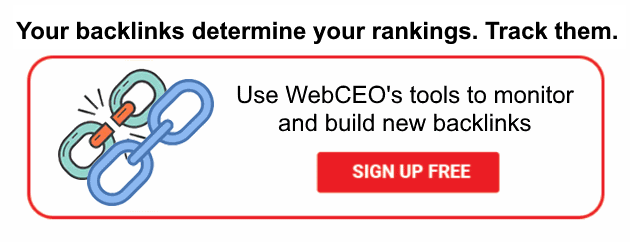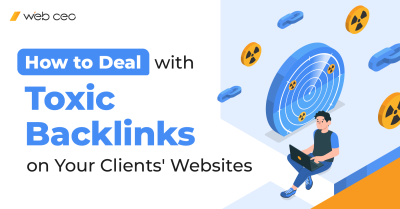
When people want anything, they go to Google and ask it to show them the way. Be it a recipe, a piece of information, an entertainment, or a new pair of shoes. Therefore, whatever your site is offering, you want Google to see it, love it, and show it to people when they ask for something relevant.
If you are a new website owner and you wish to improve its ranking, you are probably familiar with all the link building buzz and how it is important for being visible. There is a chance that you’ve read link-building guides by gurus such as Brian Dean, Rand Fishkin, and Neil Patel. There is also a chance that you understood very little of what they were trying to teach. That’s because of the three major differences between them and a fresh webmaster.

Can you still build links if you aren’t any of these gurus?
Three ways you are not Brian Dean:
First, there is an experience gap. They talk to a specific audience of SEO experts or at least people who are to an extent knowledgeable in the topic of search-engine optimization. They say things like “crawlers”, “trust flow”, “MOZ ranking”, “authority”, “link juice”. They advise tools which can be quite costly for an individual entrepreneur and are anyway too obscure and overwhelming for someone who only just embarked on their optimization journey.
The second difference is in scale. They give advice in terms of “campaigns” and “budget” thinking of you as of CEO employing a team of people, while instead, you are a one-man army.
Third and by far most important, there is a magnitude discrepancy. They tell something along the lines: “I’ve written a really cool guide based on my 10 years’ experience in the field, I’ve reached out to a Forbes editor whom I happen to know through a guy I met on networking occasion, I’ve crafted this sweet friendly personalized email and they published my article and linked back to my site. Score!”
Well, Brian Dean writing to a Forbes editor is not exactly a rags to riches story. He is a celebrity in his own right, why wouldn’t they be interested in his article for the insights and his name’s sake?
1. Don’t outsource your link building
Given all that, I can see how newbies can be discouraged. They feel helpless and unable to replicate this experience. “Well, that’s some kind of rocket science, I’d rather hire a professional to do this for me. Let’s see what Fiverr has in stock!” Stop right there.
There will come a time when your team is ready to grow. You will be able to crew your business, hire a writer who will create evergreen content for you, maybe even a research paper helper to tackle your strategy. Yet until then, don’t trust the wellbeing of your site with guys who promise to bring you to the top in a week, guaranteed (no less).
First of all, link building takes time. It is okay, to grow link by link. Sudden outbursts of links look suspicious to Google algorithms and can harm your site instead of improving its ranking. WebCEO’s Backlink Checker can help you track and analyze the quality of your backlinks, ensuring they contribute positively to your site’s SEO.
Second, often those hired self-proclaimed wizards will just link to you from a bunch of low-quality sites they own and you will get zero value for your money or even worse – get punished by Google for spammy practices.
2. Embrace content marketing
Before we start talking about reaching out to other sites and encouraging them to link to you, there is an option of gaining links naturally.
The first step here is to create something that other people have reasons to link to – helpful information, a collection of resources, or simply something entertaining they would want to share or reference. For that purpose, you will need to start a blog and make a commitment to create quality content and post it regularly. It is important, however, to stay on the topic and make sure that your content is relevant to your niche.
By the way, WebCEO’s SEO Content Assistant is a great resource for ensuring your content is not only relevant and engaging but also optimized for search engines.
The second step is to make your content visible. How can you do that without SEO? Through sharing on social media, posting on relevant forums and boards, and even sending links via emails and messengers to acquaintances you think might be interested in it. Be careful not to spam people you barely know, but do promote your content to theme groups and genuinely interested contacts. For people to link to your content, they must know it exists, right? You will have to invest some time to win your first visitors and followers and get your website off the ground, but that is the safest and most reliable way.
You can also leverage some PR tools. To gain mentions of your brand on other websites, create newsworthy initiatives that have a potential to go viral (remember the Ice Bucket Challenge?) and connect with micro-influencers (people with a significant, yet not massive following who can get you exposure and are more likely to answer to your request).
3. Explore community-driven platforms
User-generated sites can be of tremendous value for those who are yet to become an authority in their niche. Thanks to mainstream citizen journalism and participatory culture we have Medium, HubPages, and many other community-driven platforms, where any member can submit their content and gain exposure. If you think that they are too crowded, you are right but don’t be too hasty to dismiss them!
They have a tremendous readership and provide you with all the tools to become visible: channels, topical groups, subtopics, and tags are there to ensure that your content will find its audience. It’s a two-way street: a) your article will be shown to the most interested readers in the first place, b) people who will search for something related will easily find you.
Some of those platforms are true Wild West, but mostly they are moderated and blatantly promotional stuff gets weeded out, so make an honest effort to post good stuff that will provide value to readers and you will get the attention you seek and deserve.
Another added bonus of this strategy is that by posting to those platforms you build a portfolio of published articles that you could showcase when you outreach to guest blog. This way an editor will be able to appreciate your style, topics you deal with, and your unique take on them.
4. Do handpick sites for outreach
Guest blogging is still a great opportunity for a small fish with big potential, such as you are. Don’t start with stellar sites, aim for some smaller but relevant ones instead, and reach out to fellow bloggers who already have decent following and ranking.
How do you find such opportunities? You probably already know. Classic Googling. Search for keywords relevant to your niche and pair it with phrases like “write for us”, “contributor guidelines”, and “submit an article”. Experiment with other words. Sites that had “write for us” on their pages got creative in conveying the meaning after being persistently pestered by spammers who used automated outreach tools. This is another reason why handpicking pays off.
Always take the trouble to go and look at the site – you don’t want a link from a hideous article farm that exists solely for the purpose of content marketing and doesn’t have any real readership. Besides, if everyone and their uncle posts there it’s hardly relevant.
Even personalized emails with relevant pitches aren’t always opened and seldom answered. Yet if someone took the trouble to email you back, they are probably genuinely interested in what you have to offer, so cherish those answers.
I am not going to lie, it is very time-consuming. Yet this grind will pay off later. A hundred of relevant, legitimate links paired with quality content will get you much further than a thousand paid links in the long run.
Yet what is even more important, is that by being honest, investing your time in good content and finding your genuinely interested devoted audience, you don’t merely build links. You also establish yourself as an authority in your niche and that means you are on the way to becoming as big as Brian Dean. I admit, it is a long way, but you have to start somewhere.




